
What do you picture when you hear “Mickey Mouse” – Disneyland? Happiness? Childish innocence? Maybe the Mickey Mouse Clubhouse TV show? Any way you think of Disney’s character, you most likely aren’t thinking of Mickey as a character hooked on drugs and alcohol, participating in “illicit” behaviors such as sex – unless you are the Air Pirates that is.
The Air Pirates were a group of counter-culture cartoonists founded and led by Dan O’Neill, including members Bobby London, Gary Hallgren, Ted Richards, and Shary Flenniken. The Air Pirates created two issues of their counter-culture comic entitled Air Pirates Funnies which attempted to subvert Disney and their characters, calling them out for “corporate thinking” and “conformist hypocrisy.” The characters taken from Disney had the same likeness and names, but that is where the similarities ended. The Mickey portrayed by the Air Pirates was not the lovable, innocent mouse that everyone knew; instead, Mickey was involved in illicit, adult behaviors such as drugs and alcohol and sex. In the image pictured above, Mickey and Minnie Mouse are engaged in what is clearly depicted as oral sex. Furthermore, in the image depicted below, Mickey seems depressed as to why no one (Daisy or Minnie) would “fuck” him. Not only is the language in the Air Pirates Funnies vulgar, but the insinuation that Mickey Mouse is pining for not only one “woman” but at least two, could be considered scandalous for the time.
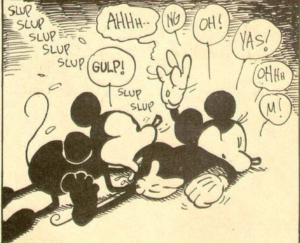
However, the problem with the Air Pirates was not only the scandalous depiction of Disney’s characters but the depiction of them in the first place. In October of 1971, Disney filed a lawsuit against the Air Pirates for copyright infringement, trademark infringement, unfair competition, intentional interference with business, and trade disparagement. Disney asked for “all of the Pirates’ profits, $5,000 for each copyright infringement, treble damages for the trademark infringement, punitive damages of $100,000 from each defendant, surrender of the offending books, and reimbursement of its attorneys’ fees” (Levin, 2004). So, it seemed that drawing Mickey and Minnie Mouse along with any other Disney characters could and would get you sued. The argument of the Air Pirates in the lawsuit was that individual aspects of a copyrighted work were not copyrightable, and even if they were, they were protected under fair use and the first amendment. Fair use, as defined by Harvard, “is the right to use a copyrighted work under certain conditions without permission of the copyright owner…allow[ing] one to use and build upon prior works in a manner that does not unfairly deprive prior copyright owners of the right to control and benefit from their works.” Eventually, the courts ruled in Disney’s favor, and many of the members of the Air Pirates settled out of the lawsuit. However, O’Neill continued to file appeals until Disney eventually settled by dropping the contempt charges and promising not to enforce the judgment as long as the Pirates stopped infringing on Disney’s copyrights. Though Disney may have technically won overall, O’Neill saw the final result as a win.
Despite the fact that the courts ruled in Disney’s favor, many still believe the Air Pirates had the right to use Mickey’s likeness and name under the terms of fair use. In fact, under the case Campbell v. Acuff-Rose Music of 1994, which argued that if the subsequent work did not “satisfy the same purpose” or “become a market substitute” then it was allowed under fair use, the Air Pirates may have very well won their case against Disney.
So, now when you think of Mickey Mouse, perhaps you’ll see the character more like the Air Pirates did: as a piece of culture asking to be parodied. For, is it illegal to use someone’s work to critique it? No, not under fair use according to the Acuff-Rose case. So where is the crime? Perhaps it is in Disney’s attempt to censor the critique of their artwork and reputation. In today’s society, comedy and parody are essential to our ability to critique and make light of the current political, social, and environmental situation.
Or perhaps, you believe in the original court ruling that the Air Pirates committed copyright infringement. Perhaps then the question for you is: what is more egregious– Mickey Mouse having oral sex or the lockdown of our personal freedoms and ability to critique our own culture?


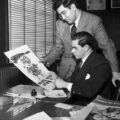
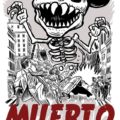
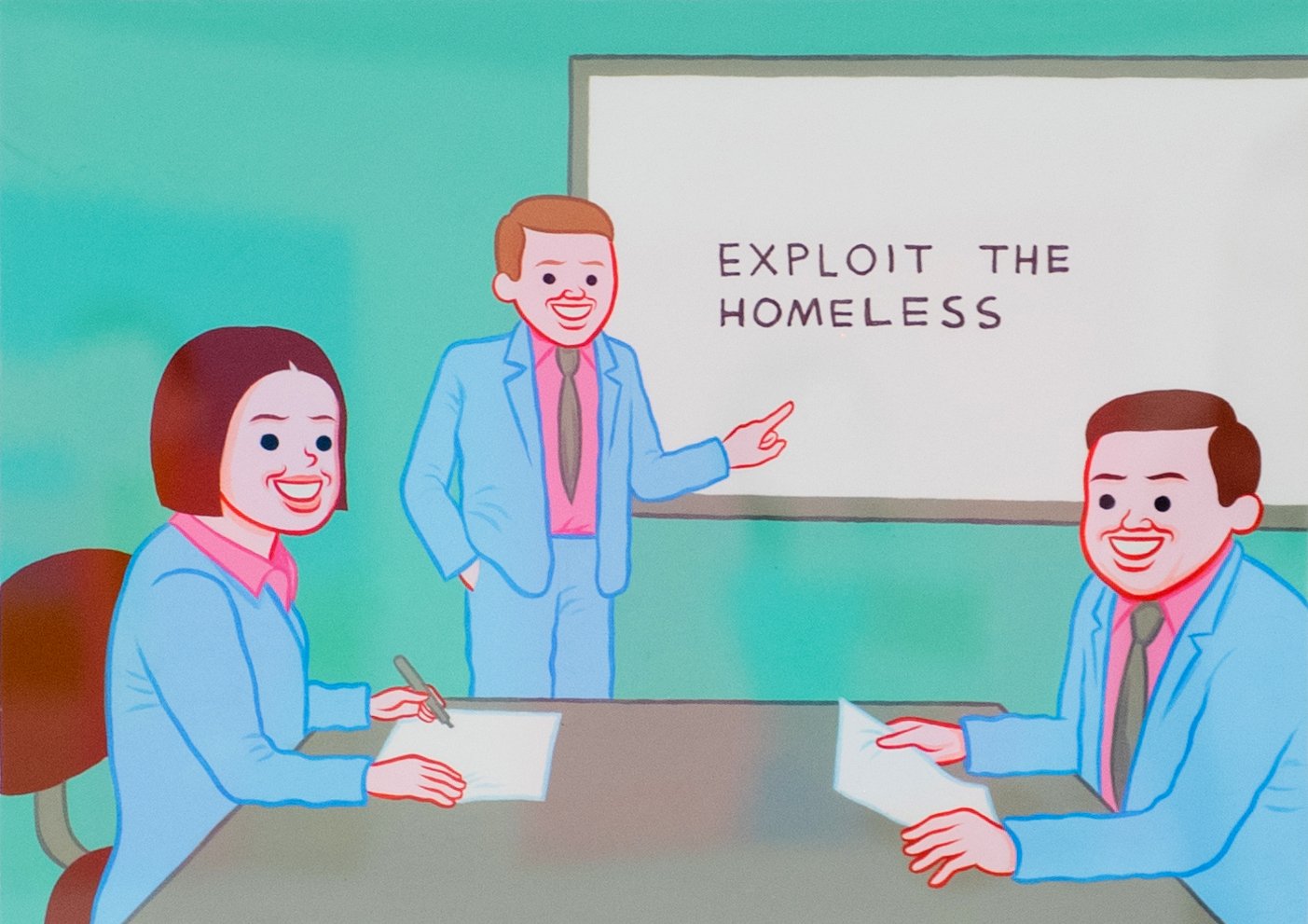

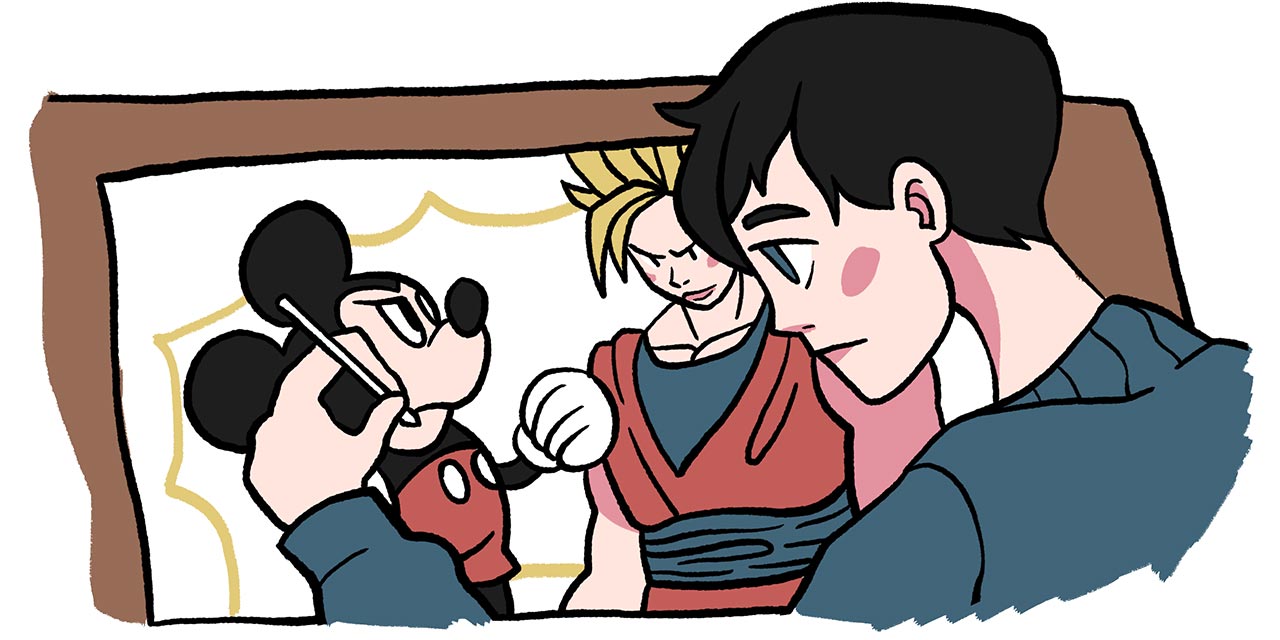

I think it is fair to say that the Air Pirates committed copyright infringement, but such a well-known character is bound to be parodied at some point. I do think it is ironic that the Air Pirates were held liable when television shows like Family Guy use Mickey Mouse and portray him in completely different ways than the true character. I think it also could be argued that Disney’s attempt to censor criticism is a crime. I think the battle dwindles down to financial reasons. If Mickey Mouse is portrayed poorly, Disney could see it as a way to lose money. I do question why Disney chooses to take action in some scenarios and not others.
This was my first time hearing about the Air Pirates, and honestly my initial reaction was just shock. Taking such an innocent childhood character and turning Mickey into a drug-using, hyper-sexual figure feels disturbing and pretty unethical. I get the idea of freedom in art and creativity, and I can see why the Air Pirates thought of it as critique or parody, but at the same time it makes sense that Disney pushed back. Mickey Mouse isn’t just a character, he’s tied to childhood, nostalgia, and even Disney’s reputation as a whole. Seeing him used in this way almost feels like a direct attack on all of that.
I have never heard about the Air Pirates or this lawsuit before reading your post. This is a really interesting case to look into. This raises a lot of questions about protecting intellectual property and preserving freedom of expression. While Disney had every legal right to defend its characters under copyright and trademark law, the Air Pirates didn’t seem to be after profiting off Mickey Mouse in the same way Disney did, or replacing the character in any way. Instead, they were using parody to critique corporate power and cultural conformity. Parody has long been a vehicle for social commentary, and cases like Campbell v. Acuff-Rose affirm its protection under fair use. Ultimately, the question becomes less about whether Mickey Mouse should be portrayed in scandalous ways and more about whether powerful corporations should have the authority to silence cultural critique. However, it does make sense that Disney would win this lawsuit, given the time period and how large a conglomerate it is. It was also a time when sexual portrayal wasn’t widely accepted by the public in comedic form– compared to now.
Based of my knowledge of US culture in the 70s, I am not surprised that Disney won the lawsuit. I am interested to know what would be the ruling if that situation were to happen today. Given the immense amount of fan created content online, it is hard to imagine a case where Disney would be winning. The defamation of characters is hard to argue, especially if it becomes something of a self-fulfilling prophecy. It’s interesting to see how laws changing reflects US society/culture. Disney won in 1970 but they probably would have lost 24 years later with the precedent of thw Campbell v. Acuff-Rose Music of 1994.
I found this article to be interesting since the logic of the Air Pirates follows tautology, or in that it’s very circular in using the law to their defense. Because their work is protected under Fair Use, the Air Pirates took advantage of this in order to argue against Disney’s lawsuit, who countered that the former was misusing their characters protected under copyright. Although Disney inevitably won in terms of legality, many people support the Air Pirates’ defense, given the circular logic behind fair use. It also reminds me of an art piece I saw at OCMA, that also crudely displayed a plethora of Disney characters engaged in sexual acts called “The Disneyland Memorial Orgy” by Wally Wood. From a distance, nothing seemed off until you took a closer look and realized how explicit characters were engaging with one another. Although this may not seem like an appropriate piece to display in public, it could be argued to be allowed under Fair Use protections, similar to how the article described.
It seems a little outlandish that the case for the Air Pirates and Mickey Mouse would’ve won, especially considering today’s culture of paroding and constant use of satire. It seems incredibly weird that Disney wanted to control their image. Why is their image worth all that protection? In the 1970s, Walt Disney had just died and Disney as a company was in their slump. This was before their so-called renaissance where they made classic movies like The Little Mermaid, Beauty and the Beast, Aladdin, and so on. Disneyland hadn’t lived up to their expectations and they were almost at risk of folding or splitting the company. To get caught up in something like this seems petty. They had a lot to worry about and they chose to protect the mouse? Maybe it was because they needed money and they knew they could win the case. That might explain their egregious demands when they won.
I find it interesting that Disney won this lawsuit against the Air Pirates and I think it has more to do with the time period of the case than the legality. Today, there are likely millions of memes and photoshopped/original images depicting Mickey mouse engaging in ‘illicit adult behaviors’ such as smoking weed. The internet is full of these kinds of depictions and images and at this point Disney likely could not care less about the defamation of Mickey mouse. With that being said, I also feel as though original Disney cartoons also contained ‘illicit adult behavior’ such as alcohol, violence, and even sex. It seems like at the time Disney just wanted those depictions on their own terms.